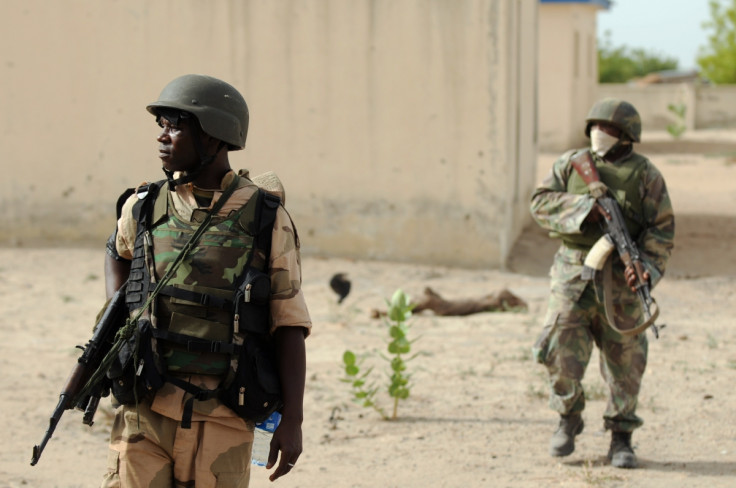Nigeria Boko Haram: Spiral of violence as military counter-terror offensive fuels revenge attacks

The Nigerian government and army should try to engage in a dialogue with Boko Haram militants as the ongoing military offensive is not enough to eradicate terrorism in the area, Nigerian activist Ahmed Umar Bolori told IBTimes UK.
Bolori, coordinator of the Fa'ash Foundation and the Partnership Against Violent Extremism (Pave), lives in Maiduguri, Boko Haram's birthplace and the epicentre of its insurgency. He witnessed the rise of the terror group, which turned violent in 2009.
Bolori said: "These boys were just 750 in 2009 when they started the blood business and intelligence reports indicate that they are now more than 10,000. Since 2009, the government has been killing them, but their number is increasing instead of decreasing.
"If the army kills five of them for instance, Boko Haram will abduct more than five people and kill tens in revenge. The more they are killed, the more they engage and brainwash young men. The army and government are competent, but things are getting worse and we are losing citizens. An eye for an eye leaves the whole world blind," said Bolori, who is also a Universal Peace Federation (UFP) ambassador.
Who are Nigeria's Boko Haram terrorists?
Boko Haram (renamed Iswap) fights against Western influence in Nigeria and aims to impose its version of Sharia law throughout occupied territories. The group declared an Islamic caliphate in Gwoza, along the Cameroon border, in August 2014.
Boko Haram carries out attacks in Nigeria and neighbouring countries in a bid to take control of more territory. Three Nigerian states − Adamawa, Borno and Yobe − have been under a state of emergency since May 2013.
Boko Haram has killed between 17,000 and 20,000 people since 2009 and was deemed the world's deadliest terror group, surpassing its ally the Islamic State (Isis), in November. Nigeria has become the world's third most terrorised country as a result of the group's violent insurgency.
President Muhammadu Buhari, who took office in May, said the government was ready to negotiate with the terrorists in order to curb violence and secure the release of some 219 girls kidnapped from a school in Chibok, a village in Borno, in April 2014.
Buhari reiterated his will to engage in talks with the insurgents during an official visit in Paris, where he said his government had refused to release a Boko Haram bomb expert in exchange for the girls.
Earlier in August, the Centre for Crisis Communication (CCC) said it was contacted by some Boko Haram members who were willing to start a dialogue with the government.
Talks are yet to commence, however. Boko Haram has not made any statement with regards to a possible engagement with the leadership, while Buhari said in October the government would dialogue only with Boko Haram leaders.
"Government has the capacity to deal conclusively with the Boko Haram insurgency through force of arms," Buhari was quoted as saying by his spokeperson Femi Adesina. "But if they want dialogue, and it is established that it is the authentic leadership, government is not averse to dialogue. But that dialogue will never be done on bent knees, or position of weakness,"
Previous leader Goodluck Jonathan also said his government was ready to engage in talks to resolve the problem of terrorism.
Defence spokesperson Rabe Abubakar told IBTimes UK: "We will continue our offensive to make sure Boko Haram is defeated. We are not, in any way, backing down. However, if our political leaders tell us we should start a dialogue, the military will comply completely. But we will continue to do what we are doing now to suppress BokoHaram."
Nigeria up close: Check out our Flipboard magazine
© Copyright IBTimes 2025. All rights reserved.






















